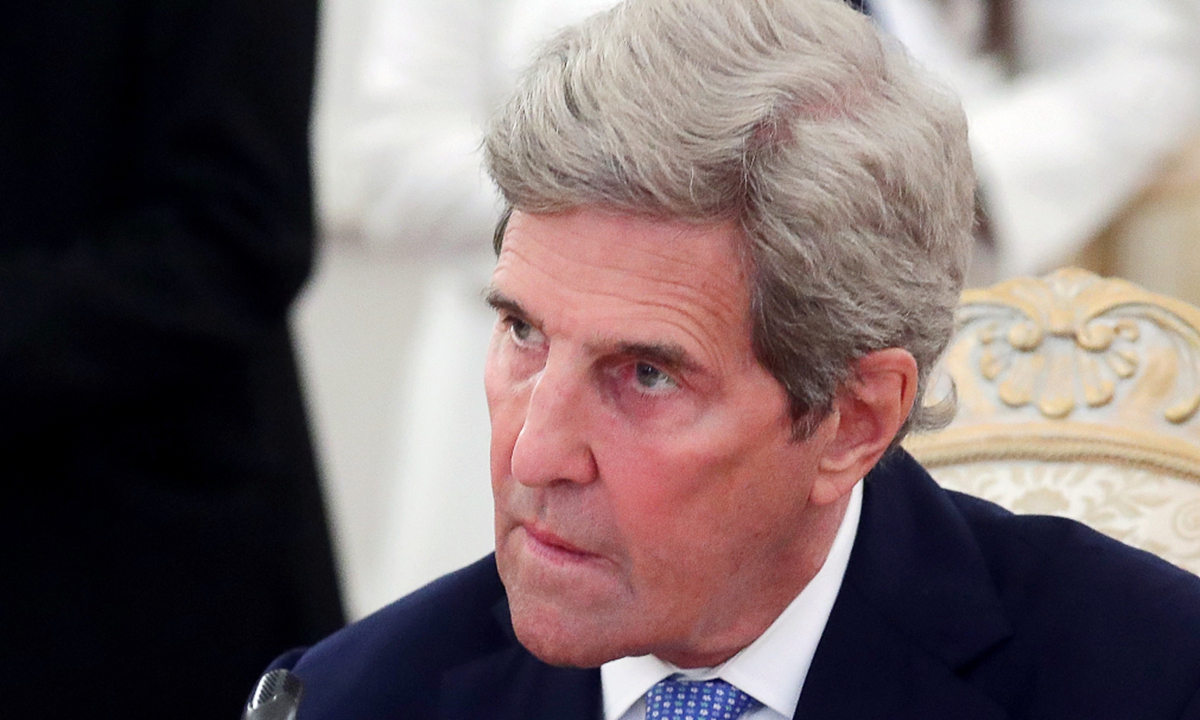
John Kerry photo:CFP
US climate envoy John Kerry announced on Monday that more than 30 parties, including the US, the European Union (EU) and Canada, have joined a global pledge to reduce methane emissions by at least 30 percent by 2030. However, China, India, Russia, and Brazil (four of the largest methane emitters in the world) have yet to join it.According to the New York Times, the pledge to slash methane emissions is one of the efforts to "set new targets to slow global warming before a major United Nations (UN) climate summit in Glasgow next month." However, there lie three key issues in it.
First, no broader consultation was made before the announcement of the pledge. The methane agreement was initially developed by the US together with the EU. Thus, it seems like the two initiators came up with the goal of the pledge without any discussion with other parties.
Second, for carbon dioxide emissions, there already are more accurate and reliable methods to measure it. But judging from the reports about the methane agreement from various US media, no scientific monitoring mechanism or standard was mentioned.
Last but not least, an enforcement mechanism is missing. The countries that joined this pledge have all agreed on a collective goal to cut the emissions, but not a specific target for each country. With such ambiguity, the overall goal will be difficult to realize.
Therefore, the pledge at current stage is purely a political show. The statement simply tells each participant of the agreement to doing the best it can to reduce the emissions. Therefore, the pledge lacks specifics. It only adds a new topic for the upcoming UN climate summit.
There are concerns about the inclusion of the methane emissions issue that will be included in the agenda of the summit. It is worrying that the introduction of such a new topic may distract attention from other important issues, such as reduction of carbon emissions. The world should focus as much as possible on emission reductions that are feasible and urgently needed.
The climate issue, after all, is a scientific one that can only be solved via new scientific discoveries and technological means. The US is the world's leading technological power, but its export control on technologies - computing technology in particular, does not contribute to the joint endeavor of global scientists to tackle climate change.
If the US does not want to share its technology with others, the only way it can do is to shut off its industrial capacity. But it will be unfair to the developing countries. The US technological management policy, especially its export control policy, is likely the most important factor that hinders global unity to cope with climate change.
US climate envoy John Kerry urged China to move more aggressively to slash greenhouse gas emissions before 2030 during an interview with Bloomberg in late September. It is a common tactic by Washington to ask Beijing to do more to cut the emissions. But in 2019, carbon dioxide emissions per capita by metric tons in the US was more than three times the world average and around twice China's.
A possible scenario could be this: the US may find it hard to realize its goal to cut carbon emissions, so it has set up another "trap." This is the consistent performance of the US government. Once it finds an issue that may dent US interests, it will find a new issue to force other countries to take a stand. Now, the US' hollow pledge lacks testing standards or implementation mechanisms. It will cast a shadow on the future of this pledge.
Methane is the second-most prevalent greenhouse gas after carbon dioxide, and it is expected to impact the global greenhouse effect in the short term. To promote global methane emissions reduction, it calls more than a few US and European scientists' research inside the laboratory. Scientists from varied countries should form a team to study methane emission reduction under the framework of the UN. The problem of methane emisisons involves common interests of the world, and should be tackled by all concerned parties together.
The author is a research fellow at the Chinese Academy of Social Sciences. opinion@globaltimes.com.cn
